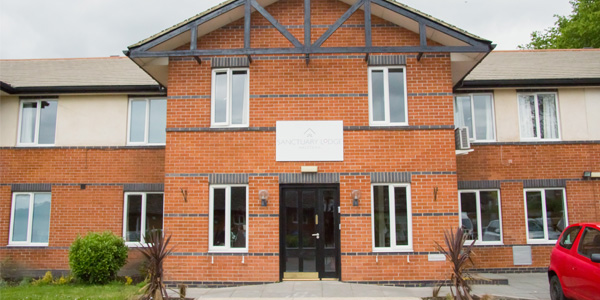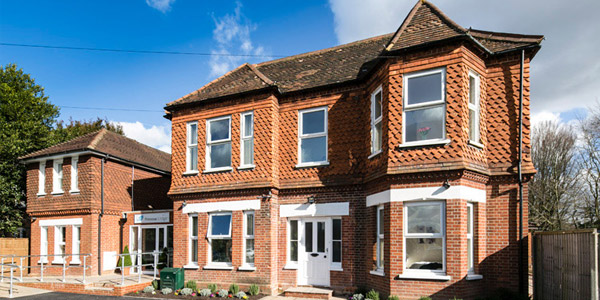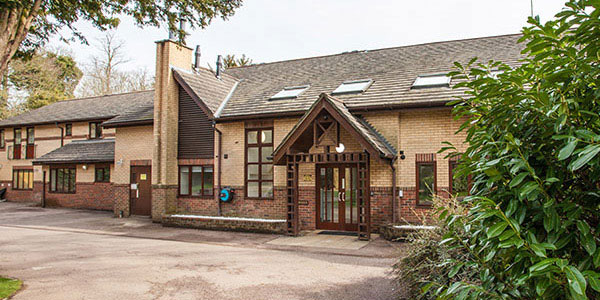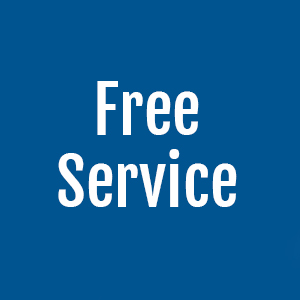Alcohol & Drug Rehab in Ealing
Alcoholism rehab and drug rehab treatment services including medical detox and therapeutic behavioural rehabilitation are available in the London Borough of Ealing which is a wealthy Borough in West London, England. Ealing, Borough, London is part of the Outer London area. There is little in the provision of free residential alcohol and drug rehabilitation facilities. The administrative headquarters of the London Borough of Ealing is in Ealing Broadway. In terms of health provision for addiction detox and recovery approach East London Ealing, London Borough Council is the local Authority in charge of the Borough.
We also medically manage drug intoxication and alcohol withdrawal at Care Quality Commission detox and rehab facilities that we recommend. The central area of the London Borough of Ealing includes Walpole, Ealing Broadway, Cleveland, Hobbayne and Dormer Wells. To the west of the Borough of Ealing are Southall Broadway, Northolt West End, Greenford Broadway and Lady Margaret. If you are seeking advice regarding alcohol/drug rehabilitation clinics and/or local treatment services for you or a loved one – call and speak to our addiction counsellors today!

Liberty House Clinic is a fully furbished detox and rehabilitation facility…
- Private
- Holistic Treatment
- Award Winning
- Residential
Featured Rehabs
Sanctuary Lodge is a state of the art detox and rehabilitation facility, se…
At Primrose Lodge we genuinely care that our patients make a full recovery …
Banbury Lodge is a private UKAT rehab facility based in Banbury, Oxfordshir…
-
- 12 Step
- Group Setting
- Free
- Outpatient
-
- 12 Step
- Group Setting
- Free
- Outpatient
-
- 12 Step
- Group Setting
- Free
- Outpatient
-
- 12 Step
- Group Setting
- Free
- Outpatient
-
- 12 Step
- Group Setting
- Free
- Outpatient
-
- 12 Step
- Group Setting
- Free
- Outpatient
- Load More
Drug & Alcohol Rehab Services in London
- A
- B
- C
- D
- E
- F
- G
- H
- I
- J
- K
- L
- M
- N
- O
- P
- Q
- R
- S
- T
- U
- V
- W
- X
- Y
- Z
What Is Rehab?

Residential rehabilitation – or “rehab” – describes the process of getting treatment for addiction at a dedicated facility, as well as being a term for such a facility itself (“going to rehab”). Rehab typically comprises two phases: detoxification (“detox”), during which a patient’s system is cleansed of substances of abuse and they go through withdrawal; and therapy, designed to uncover and examine the root causes of addiction and to give patients psychological defence mechanisms with which to resist relapse.
Rehab’s ability to address both short- (physical dependency countered by detoxification) and long-term (psychological addiction, tackled by therapy) challenges in one programme conducted under one roof is unparalleled. As a result, the general consensus is that rehab is the most effective approach to the treatment of addiction, in that it is the most likely to result in permanent abstinence on the part of the erstwhile addict – and, indeed, in mainstream culture “rehab” has become synonymous with addiction treatment.
How Can I Get Someone into Rehab?
Anyone who has lived with addiction can testify that every day that goes by in such a condition is a day full of risks and dangers: not only are addicts susceptible to the threat posed by overdose, but they are also exposed to the likelihood of fatal accidents or terrible acts of violence in which the consumption of substances of abuse is a key factor.
Because of this, time is of the essence when it comes to treating addiction: as soon as an addict is able to recognise the true nature of their condition and willing to ask for help, they need to be removed from their damaging environment and given the assistance they need. It is not too much to say that this is often a matter of life or death.
While the NHS provides high-quality addiction treatment services across the country, demand is extremely high and waiting times can therefore be distressingly lengthy (a potential delay which, as noted, can sometimes have tragic consequences). If you are suffering from addiction and are worried that time may be running out for you, do not wait even one more day before reaching out for help: contact an addiction specialist on 0800 024 1455 to discuss some of the private options which may be available to you.
Advantages of Private Rehab
The precise nature of treatment at rehab varies from one facility and organisation to another. However, there are of course commonalities, including confidentiality, and the provision of a secure environment in which addicts can begin the recovery process away from the temptations of daily life, such as dealers and pubs, which have hitherto facilitated their substance abuse and their decline into addiction.
Upon arrival at rehab a patient will be assessed to give the medical team an understanding of their mental and physical health and the severity of their addiction. Subsequent to this, they will embark on a period of detoxification (“detox”) during which their system will be cleansed of substances of abuse and they are likely to experience withdrawal syndrome; the detox process will be monitored and assisted by experienced and sympathetic medical professionals, who may be able to alleviate the worst withdrawal symptoms via appropriate medication.
Once detox is complete, the patient will proceed into a phase of therapy: various different therapeutic models may be deployed in both group and one-to-one settings, aimed at revealing the fundamental causes of the patient’s addiction, and at providing them with sophisticated psychological defence mechanisms to counter the threat of relapse.
Throughout their stay, the patient will benefit from being given bespoke fitness and diet plans – “healthy body, healthy mind” – as well as having access to whatever fitness and recreational facilities the rehab in question may contain.
Upon the conclusion of their residency at rehab, the patient – now a recovering addict – will be given a year’s free aftercare, recognising that simply leaving rehab does not mean that recovery is complete: recovery can be a lifelong process and requires constant diligence and dedication to remaining free of substance abuse, if the recovering addict is not to slip back into their old self-destructive ways.
What Does Rehab Cost in London?
The cost of private rehab in or near Ealing can vary significantly by treatment programme, and depending on which of a variety of optional extras are selected. As a rough guide, standard costs range from between £5,500 and £11,000 per month, though the cheapest rehab treatment can start from as little as £834 per week. For more details, call 0800 804 4755.
Ealing NHS Addiction Treatment Options
If you feel that private rehab is currently not an option for you for reasons of cost, or if you do not feel that you are able to spend the required time away from family and/or work obligations, do not despair: various NHS and charity resources can be found in Ealing and across London which can help you combat your addiction. Consult your GP about which of these resources may be available to you and would be most appropriate for your specific situation.
Advantages of NHS Treatment
The most obvious advantage of NHS treatment is that it is free at the point of use, while private rehab comes at a cost as noted above (though it is also worth noting that this cost pales into insignificance when set alongside the costs – financial and otherwise – of not getting treatment and continuing to live with a dangerous addiction).
Another positive is that as the NHS operates right across the country is facilities tend to be very geographically accessible, while some rehabs are a long distance from Burton upon Trent; meanwhile the NHS offers a quality service, though that quality can vary significantly from one trust to another.
Addiction Support Groups
A number of organisations exist across the country to provide assistance to recovering addicts, and some of these operate a support group model. Support groups are groups of individuals who are themselves recovering addicts – some only recently free from addiction, while others may have been clean for many years.
Here, they come together at regular meetings to give and take mutual support: sharing their stories of addiction, giving advice on how to resist relapse, showing solidarity and sympathy when group members are struggling, and providing the simple companionship which can mean so much in times of difficulty and loneliness.
Support group attendees can come from all walks of life, brought together by their shared experience of addiction and recovery; typically, attendance at support groups is free and the only qualification for participation is a commitment to leading a life free of substance abuse.
The most famous support group organisation, and the one on which most others are modelled, is Alcoholics Anonymous (AA) which was founded in 1935 and runs on a 12-step programme of personal and spiritual development, with one of the steps being a recognition that a higher power – such as God – can assist with an alcoholic’s recovery
Narcotics Anonymous (NA), founded in 1953 and based directly upon the AA model, is the second-largest support group organisation worldwide and caters to recovering drug addicts specifically. In a similar vein, but supporting those recovering from addictions to specific substances, are Cocaine Anonymous (CA), Heroin Anonymous (HA), Marijuana Anonymous (MA) and Crystal Meth Anonymous (CMA), all of which operate 12-step programmes. There are also support groups such as Al-Anon and Nar-Anon assisting the families and friends of addicts which typically hold meetings alongside those for the addicts themselves.
To find information on meetings in or near Ealing, see the relevant websites: Alcoholics Anonymous
, Narcotics Anonymous; Cocaine Anonymous; Heroin Anonymous; Marijuana Anonymous; Crystal Meth Anonymous.
Types of Counselling

Individual counselling is a type of help for recovering addicts which can be particularly beneficial for people with very busy schedules. individual counselling may be engaged in following a stay at rehab (or other addiction treatment) as a supplementary aid to recovery, or perhaps as a way of managing an addiction before engaging in a full training programme.
Private addiction counsellors work in ways similar to the operations of “normal” psychotherapists, although obviously the focus is on addressing the causes and consequences of addiction; counsellors offering a broad range of approaches to therapy and different therapy models can be found across the country, including many in Greater London.
Counsellors can be seen by private appointment, typically on a weekly basis, and usually charge a fee per appointment; while some counsellors make themselves available for emergencies, it is more common for access to be limited to working hours.
Reaching Ealing in London
The London district of Ealing is a West London area, surrounded by the boroughs of Harrow, Brent, Hammersmith & Fulham, Hounslow, and Hillingdon. It’s easy to reach from any of these zones, as well as the whole of London.
If you need to get there from outside the area, it’s easy if you get off the train at Ealing Broadway station on the Great Western Main Line. The London Underground (fare zone 3) also reaches most wards inside the borough borders. Underground stations are serviced by the following lines: Piccadilly line (North Ealing, Ealing Common, South Ealing and Northfields), Central line (Ealing Broadway and Hanger Lane), and District line (Ealing Broadway and Ealing Common).
If you’re arriving in London via plane, the closest airport to Ealing is Heathrow airport, also found in West London. Via train, there are National Rail’s services servicing the Ealing Broadway and West Ealing stations.
There are 23 Ealing wards: Acton Central, Cleveland, Dormers Wells, Ealing Broadway, Ealing Common, East Acton, Elthorne, Greenford Broadway, Greenford Green, Hanger Hill, Hobbayne, Lady Margaret, Northfield, North Greenford, Northolt Mandeville, Northolt West End, Norwood Green, Perivale, South Acton, Southall Broadway, Southall Green, Southfield, and Walpole.
How to Get to Liberty House Clinic from Ealing
Liberty House Clinic is a fully furbished 18-bed drug and alcohol detox and rehabilitation facility in a peaceful, picturesque suburban setting in the heart of Luton. Its large, spacious grounds are the ideal place in which to address the key questions at the heart of recovery from addiction, and to embrace its fully comprehensive rehabilitation programme focused on mental, physical and spiritual well-being.
To get to Luton from Ealing, head out on the Broadway (A4020) to the North Circular Road and head clockwise as far as the M1. Take the M1 towards Luton Airport. Exit at junction 10 and take the A1081 towards London Road; follow signage to the town centre.
Liberty House Clinic
220 Old Bedford Road
Luton
Bedfordshire
LU2 7HP





